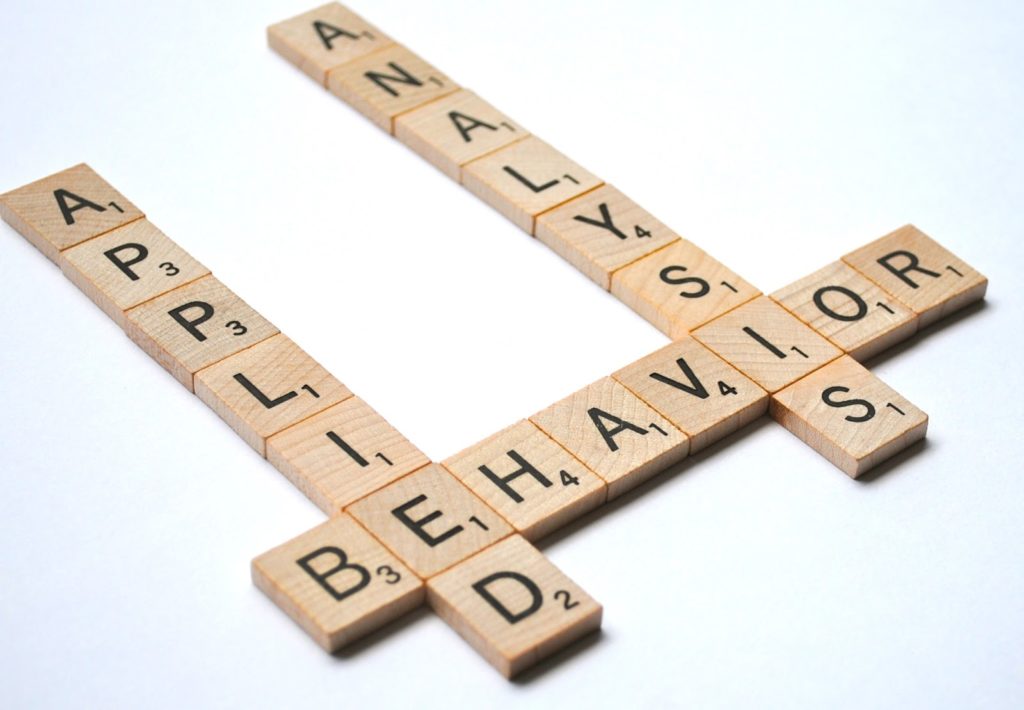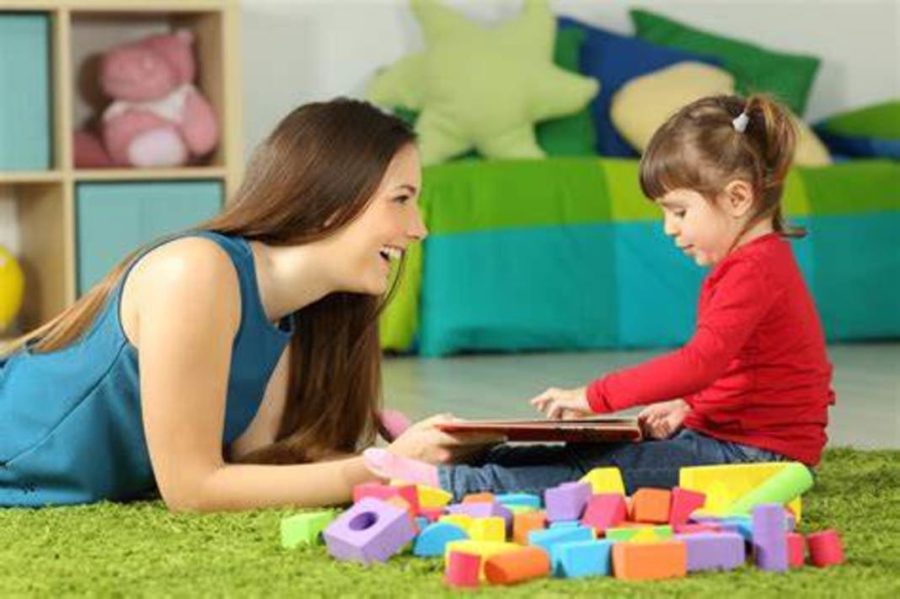Applied behavioural analysis (ABA) is a form of treatment that, through constructive enhancement, may enhance cognitive, communicative, and learning skills.
ABA is considered by many experts the Gold Standard for Autism Spectrum Disorder (ASD) children or other disorders in development. However, it is often used to treat other disorders, including:
- substance misuse
- dementia
- cognitive impairment after brain injury
- eating disorders
- anxiety and related conditions such as panic disorder, OCD, and phobia
- anger issues
- borderline personality disorder
What Is ABA Therapy?
ABA is the most widely used therapy for children with autism. ABA stands for applied behavioural analysis. Its approach is focused on behavioral strategies that encourage a person to learn the correct habits through a combination of incentives and consequences. In children diagnosed with autism spectrum disorder and other emerging disorders, the ABA training services use positive feedback to enhance comprehension, cognitive ability, and academic abilities. While the demonstrable effectiveness of the approach has made autism a gold standard, others consider it as disrespectful and dehumanizing.

Benefits of Applied Behavioral Analysis Therapy for Kids
Here are the Benefits of Applied Behavioral Analysis for kids:
- Early experiences of a child have a huge impact on brain growth, but care that occurs early will make life and school achievement even more successful. Children who start
- ABA before the age of five learn greater behavioural and cognitive abilities relative to children who start after five.
- Mastering the core skills of speech, self-care, and cognitive competence significantly increases in contrast to other approaches.
- ABA professionals will communicate closely with children to discuss how children learn when such habits take place, and how changes are needed before practices are established and how they are allowed to be learned.
- With concentration, memory, and IQ, ABA has demonstrated a substantial increase in academic success. It has also demonstrated that understanding, language skills, and speech capability are enhanced without words.
- ABA leads to a significant reduction in disruptive behavior, particularly in children who appear to stray and self-harm.

How Does ABA Works?
ABA consists of multiple phases that require an approach customized to the unique needs of your child.
1. Consultation and Assessment
First, you would like to meet an ABA-trained therapist. A functional behavior assessment (FBA) is the name of this assessment. The therapist will inquire about the talents and capabilities of your child, as well as the challenges.
They will spend time engaging with their child and check about their attitude, quality of communication, and skills. They can even visit your home and the school with your child to observe the actions of your child during normal daily activities.
Successful treatment for ASD is different for each child. To this end, ABA therapists should discuss particular approaches relating to the needs of your infant. Also, they can ask to incorporate those techniques into your home life.
2. Plan Development
The therapist with your child will use their findings from the original assessment to establish a structured counseling schedule. This approach should comply with the individual needs of your child and have realistic expectations for recovery.
In general, these priorities apply to eliminating disruptive or negative habits, such as tantrums or self-injury, and increasing or enhancing cognitive and other talents.
The strategy would likely have particular parents, students, and the psychiatrist will use particular methods to meet expectations for therapy. This helps keep anyone who is working on the same page as your child.
3. Caregiver training
ABA also depends on caregivers and carers to aid with improving positive habits outside of treatment.
Your child’s therapist will teach you and the teachers of your child techniques that will help improve the counseling work that they do.
And, you’ll learn how to effectively resistless successful forms of reinforcement, such as giving in to tantrums.
4. Frequent Evaluation
ABA therapists aim to discover the roots of such habits and either alter or strengthen the infant. Your child’s therapist may change their method over the course of the therapy depending on how your child reacts to those therapies.
As long as your child continues to undergo therapy, their doctor can continue to track their development and evaluate which methods succeed and when your child can benefit from new approaches.
5. Parent/Caregiver Training
The caregivers, parents, and teachers will need to be educated in activities that improve positive habits outside counseling. Methods that can improve progress that goes into treatment and therefore minimize negative habits including giving in to tantrums would be taught.
How Much Does Applied Behavioural Analysis Cost?
Depending on the counseling needs of your child, the type of ABA program you select and the person providing therapy will change the cost of ABA. ABA systems providing additional services can be more costly.
In general, a board-certified ABA therapist pays about $120 an hour of ABA counseling, provided that his figures will differ. Although non-board certified therapists may offer lower treatment rates, it is recommended to work with a certified ABA therapist or a certified therapist-surveyed team.
Some authors prescribe ABA care up to 40 hours a week, but in actual fact, therapists typically work 10-20 hours a week with their clients. This selection can vary according to the needs of your child.
Given that your child needs 10 ABA hours a week on average at a rate of $120 per hour, it costs $1,200 per week to handle it. A few months later, several children are progressing, but each child is different and ABA therapy will continue for three years.
Is It Possible To Do This At Home?
Therapy will occur in your home as well. In reality, some kids do their best with ABA at home, because they feel more relaxed in their normal setting. It can also promote their desire to learn those basic skills, such as getting ready and using the toilet.
But it is safer to just try ABA at home, at least at the beginning, with the aid of a certified practitioner. They can help you come up with a program that’s tailored to your child’s needs.
Moreover, a new study shows that ABA therapy delivered by telehealth providers may be a cost-effective alternative to conventional ABA. What you need is a working computer and access to the Internet.
Are There Any Misconceptions Regarding Applied Behavioural Analysis Therapy?
- “The ABA is experimental.” It’s wrong! ABA has been working for more than 30 years now and remains the only strategy approved by the U.S. Surgeon General.
- “ABA is not dealing with older children.” ABA can be administered on children of any age and they take longer as long as they are aged, with all therapies.
- “ABA depends too heavily on incentives for food.” Food is one of a great deal of ABA rewards. While certain children obtain nutritional incentives, the treatment should be changed to take advantage of such incentives.
- “Children are told NO all the time with ABA.” It’s wrong! ABA makes use of positive reinforcements, and the software is based on the effectiveness of positive reinforcements.
- “ABA is a modern treatment.” Since the 1970s ABA has been applied widely although since the 1950s there have been principles of integrated behavioural analysis.
- “The 40-hour weekly recovery schedule is required for ABA therapy.” ABA employs an incredibly customized approach, but the time taken for each child varies.ABA is an autism care tool that has been clinically established. Early action strongly leads to improved contact and other capabilities while at the same time reducing adverse comportments. It is important to bear in mind that ABA is one of the many therapies available for autism and does not work for other people.
Also Read: Stages Of Moral Development In Children













